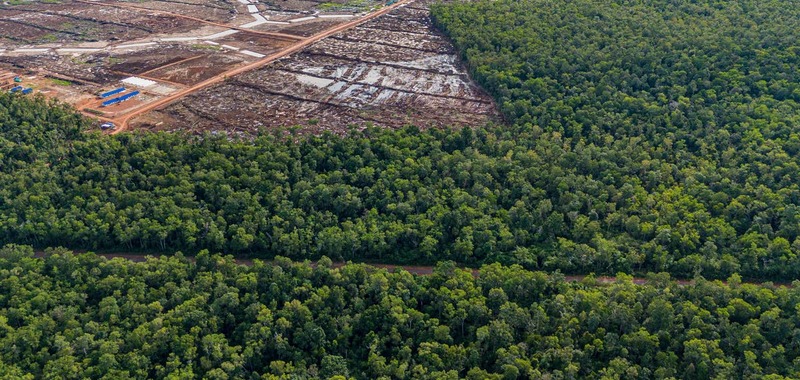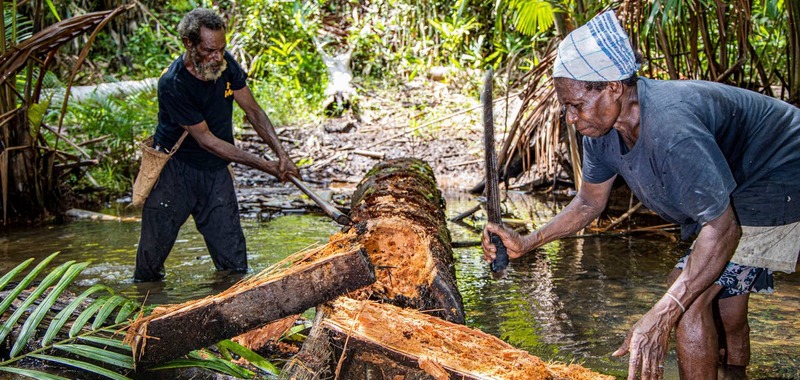

The Indonesian government has unveiled a controversial proposal to clear vast areas of its rainforest to pave the way for bioethanol production using sugarcane and other food crops. This ambitious project is marked as the largest deforestation initiative currently planned worldwide, stirring environmental debates across the globe. The plan is intended to align with Indonesia's larger vision of boosting its energy mix through renewable sources, yet it brings with it complex implications that are already being critically examined.
Local communities residing in proximity to the proposed deforestation sites have voiced grave concerns regarding the impact of such significant changes to their environment. Reports from these regions describe adverse effects, not only on the natural habitat but also on the socio-economic fabric of daily life. The loss of forested areas, which serve as vital resources for many rural Indonesians, threatens traditional lifestyles dependent on forest products and biodiversity.
Adding to the social consequences, environmental scientists warn about the potential ramifications of large-scale deforestation on the local and global ecosystem. Indonesia's forests are homes to some of the Earth's most endangered species, including orangutans and elephants, whose habitats would further shrink under this deforestation agenda. Moreover, these forests play a critical role in carbon sequestration, helping to mitigate climate change. The loss of these forests would not only affect local wildlife but also contribute to a rise in carbon emissions, further intensifying global environmental challenges.

Despite these concerns, the Indonesian government argues that the transition to bioethanol production supports national interests by moving towards more renewable energy. However, the balance between environmental priorities and energy production continues to be a hotly debated topic.
Indonesia is renowned for having the world's third-largest rainforest, a significant source of biological diversity. Its forests are critical ecological zones, showcasing a plethora of species, some unique to these forests. The proposed deforestation project thus raises alarms not only about the potential loss of biodiversity but also about the indigenous communities whose lives are inextricably linked to these lush landscapes.
In terms of global environmental policies, Indonesia’s rainforest deforestation poses a significant hurdle. The international community underscores the critical need for sustainable management of natural resources, citing Indonesia's vast rainforests as pivotal in global efforts to combat climate change. Losing significant portions of these forests could offset considerable progress made in terms of global carbon reduction strategies.

Delving into the history of food estates, Indonesia has experimented with this model for several decades, albeit with mixed success. These large plantations were initially conceptualized to bolster the country's food security and agricultural productivity. However, past projects often experienced setbacks, such as ineffective management, inadequate infrastructure, and environmental degradation. As a result, the outcomes have been inconsistent, prompting criticism from various quarters.
The revival and expansion of the food estate policy gained momentum under the leadership of President Joko Widodo (2014-2024). He expanded the concept not only to strengthen food security but also to include bioethanol production as part of the national energy strategy. This adaptation aligns food estates with the objective of diversifying energy resources, ensuring that they contribute towards Indonesia's goal of incorporating more renewable energy into its portfolio.
Under current President Prabowo Subianto, these initiatives continue to absorb substantial government focus and resources, affirming the strategic importance placed on achieving energy independence and sustainability. Yet, the execution of these plans must reconcile the seemingly opposing goals of ecosystem preservation and economic expansion.
Incorporating bioethanol into the energy matrix is part of the broader national agenda to increase reliance on renewable energy sources. Bioethanol, a renewable fuel derived from plants like sugarcane or corn, offers a cleaner alternative to fossil fuels. However, the broad-scale clearance of forests to cultivate these crops raises a myriad of ethical and environmental questions.
Ultimately, Indonesia's ambitious project underscores the ongoing global challenge of balancing ecological integrity with developmental and energy demands. Caught between preserving its priceless ecological heritage and advancing its energy goals, Indonesia faces a defining moment in its environmental and economic stewardship. As the international community watches closely, the outcomes of this proposal could set significant precedents for future large-scale environmental and energy initiatives. The path Indonesia chooses will indubitably have ramifications well beyond its borders, affecting global perceptions of sustainable development and climate responsibility.



